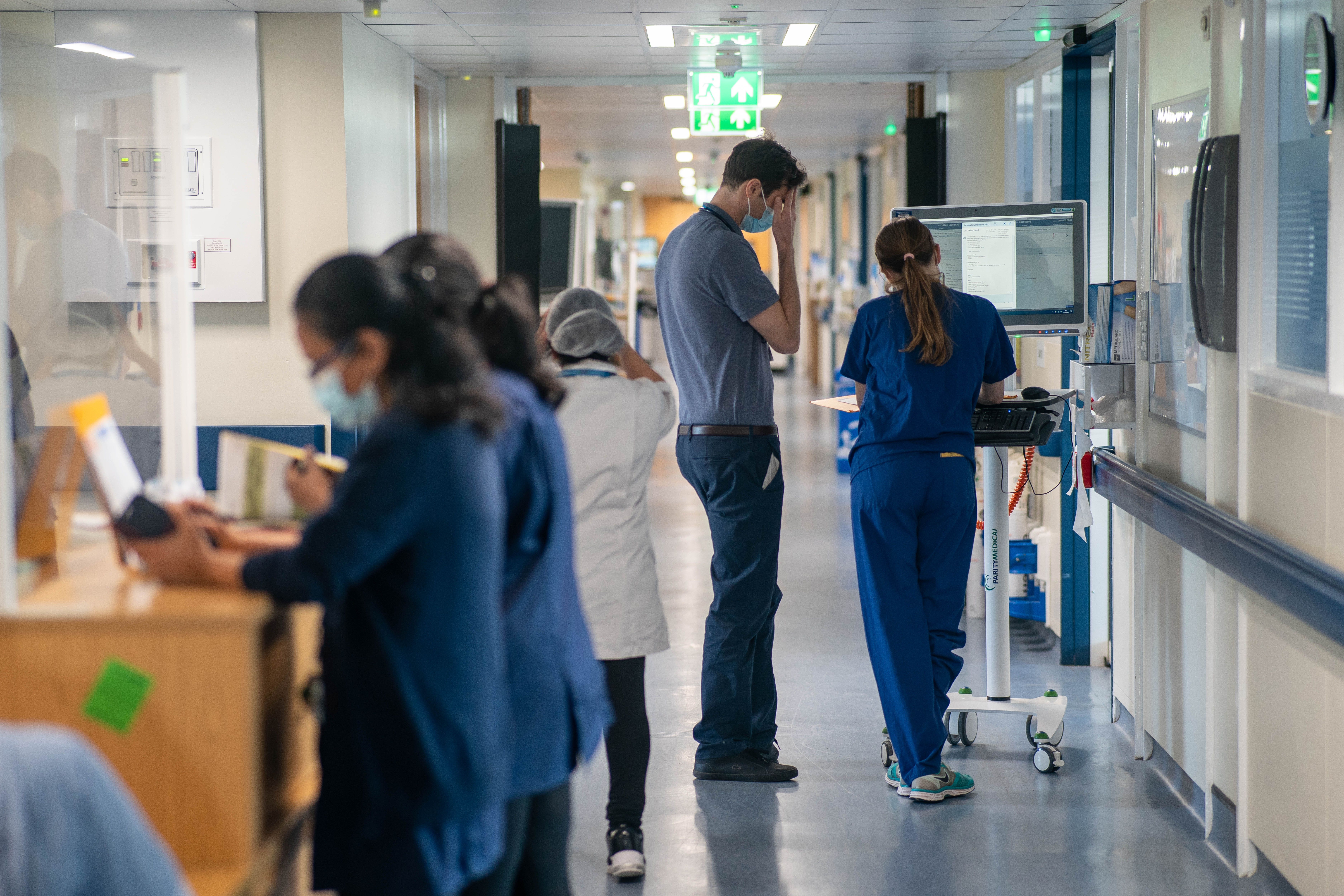NHS buildings ‘in a bad way and getting worse’
Data on hospital chemical leaks and fire alarms was compiled by the Liberal Democrats following a number of Freedom of Information requests.

Your support helps us to tell the story
From reproductive rights to climate change to Big Tech, The Independent is on the ground when the story is developing. Whether it's investigating the financials of Elon Musk's pro-Trump PAC or producing our latest documentary, 'The A Word', which shines a light on the American women fighting for reproductive rights, we know how important it is to parse out the facts from the messaging.
At such a critical moment in US history, we need reporters on the ground. Your donation allows us to keep sending journalists to speak to both sides of the story.
The Independent is trusted by Americans across the entire political spectrum. And unlike many other quality news outlets, we choose not to lock Americans out of our reporting and analysis with paywalls. We believe quality journalism should be available to everyone, paid for by those who can afford it.
Your support makes all the difference.Buildings across the NHS “are in a very bad way and getting worse”, with the Government being warned that patients “deserve better”.
It comes after an investigation by the Liberal Democrats found evidence of chemical leaks in patient areas at a number of hospitals in England, as well as broken fire alarms in some facilities.
Saffron Cordery, deputy chief executive of NHS Providers, said: “Keeping patients and staff safe is vital. High-quality care depends on having reliable buildings and equipment.
“Too many NHS buildings and facilities are in a very bad way and getting worse.
“Trust leaders have warned long and loud about the eye-watering cost of trying to patch up creaking infrastructure and out-of-date facilities. The multibillion-pound repairs bill is growing at an alarming rate.”
Data from one Freedom of Information (FOI) request made by the party revealed there had been 115 chemical leak incidents at NHS hospitals between June 1 2022 and May 31 2023.
Hospitals are falling apart, with chemical leaks in critical wards and a frightening number of faulty fire alarms. The repair budget for crumbling hospitals is mounting up yet ministers are nowhere to be found
Manchester University Trust recorded the highest number of chemical leaks with 22.
A statement from the trust said it takes “chemical safety extremely seriously”.
The statement added: “As one of the largest NHS Foundation Trusts in the country operating across 10 hospitals, meaningful comparison with smaller organisations is very difficult. Our colleagues are diligent and robust in flagging incidents, no matter how small.
“For example, one patient in our maternity ward reported a chemical smell, which quickly dissipated. In another incident in obstetrics, a member of staff reported an allergy to the handwash. All incidents are reported using the correct process, and investigated as appropriate to ensure lessons are learned.”
Another FOI request sought figures on the number of fires in NHS trusts in England during the period, as well as the number of broken fire alarms.
Of the 83 trusts that supplied data, there were 297 recorded fires, although the Liberal Democrats said NHS statistics showed there were 1,159 fires across the health service in 2022.
Surrey and Sussex Healthcare NHS Trust had 17 fires during the timespan and also had 17 broken fire alarms.
University Hospitals Bristol and Weston NHS Foundation Trust has two fires and 15 broken alarms, while the Royal Cornwall Hospitals NHS Trust reported one fire but also had 17 broken alarms.
Liberal Democrat health and social care spokesperson Daisy Cooper said their findings are “shocking”.
She added: “Hospitals are falling apart, with chemical leaks in critical wards and a frightening number of faulty fire alarms. The repair budget for crumbling hospitals is mounting up yet ministers are nowhere to be found.”
Last month the public spending watchdog said the Government is on track to break a key promise to build 40 new hospitals by 2030.
A report by the National Audit Office (NAO) found delays in projects mean the target is not likely to be met.
By the watchdog’s analysis, 32 hospitals in England classed as new by the definition the Government first used are set to be completed in 2030.
Ms Cordery added: “Many trusts in the Government’s New Hospital Programme were deeply disappointed to learn that their building plans won’t be delivered before 2030.
“It was even more frustrating for those that missed the ‘cut’ and weren’t given any funding at all despite expectations.
“Hospitals and mental health, ambulance and community NHS services need investment for essential projects to overhaul ageing facilities, improving care, supporting staff and giving a lift to their communities.”
Ms Cooper said patients “deserve the dignity of being treated in safe, modern and clean hospitals”.
“Instead we have heard stories of sewage spills and chemical leaks leading to evacuations,” she added. “The British public pay their fair share and deserve better than this.
“The Conservative Government needs to step up and fix our hospitals. The Conservative party simply cannot be trusted with the NHS.”
A Department of Health and Social Care spokesperson said: “Patient safety is our top priority and we are investing record sums to upgrade and modernise NHS buildings so staff have the facilities needed to provide world-class care.
“This includes £4.2 billion last year and a further £8.4 billion over the next two years to allow trusts to invest, refurbish and maintain their buildings.
“We are also building 40 new hospitals by 2030 through the New Hospital Programme, which is now expected to be backed by over £20 billion.”